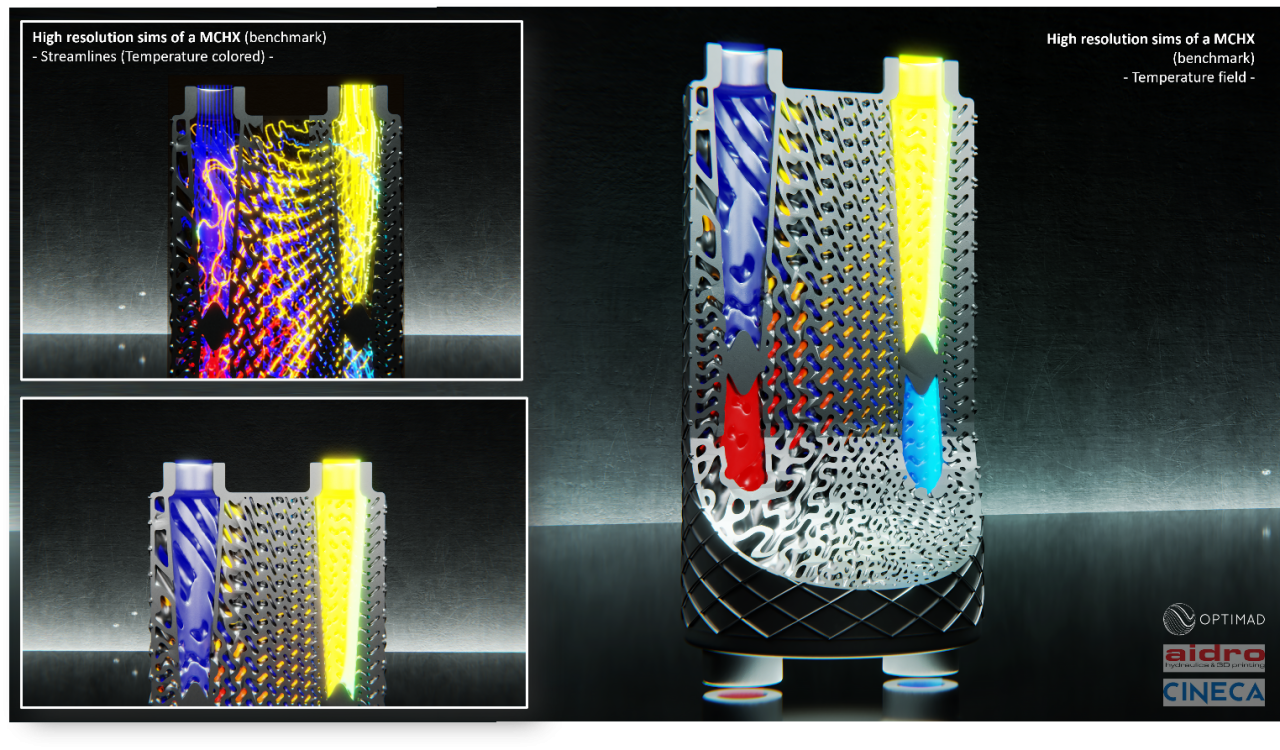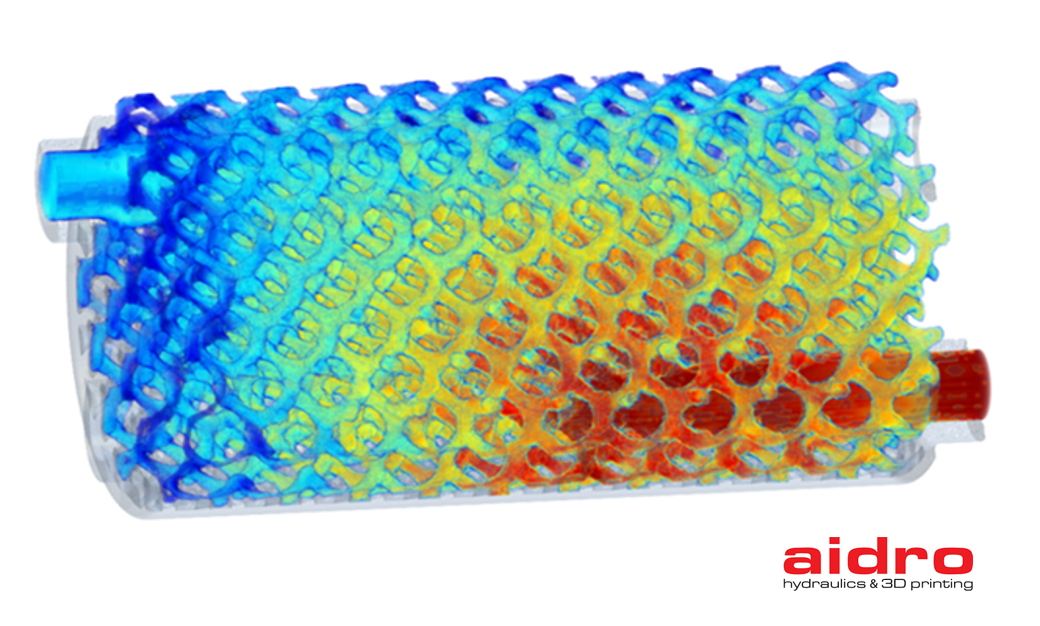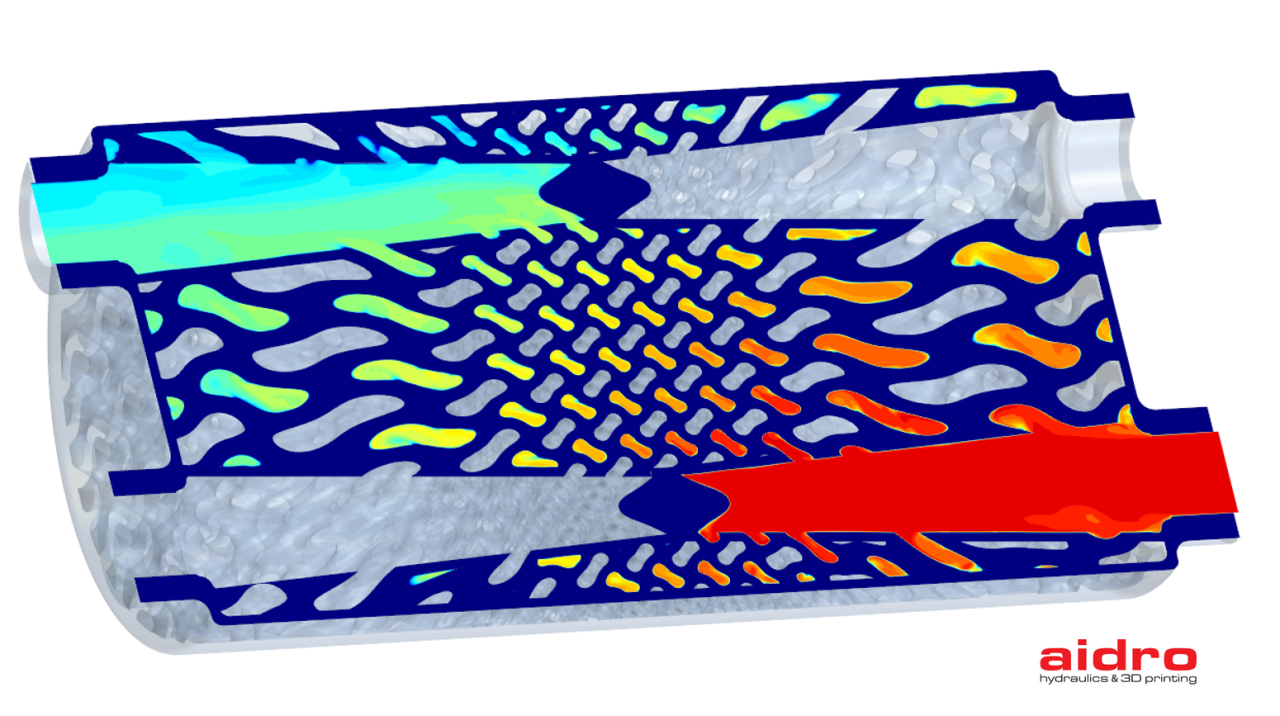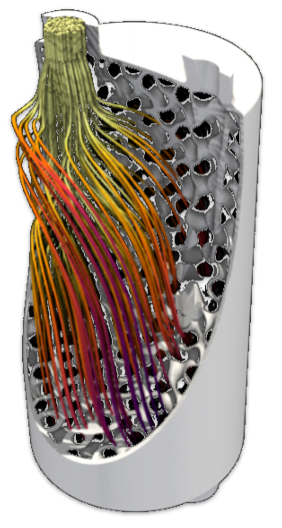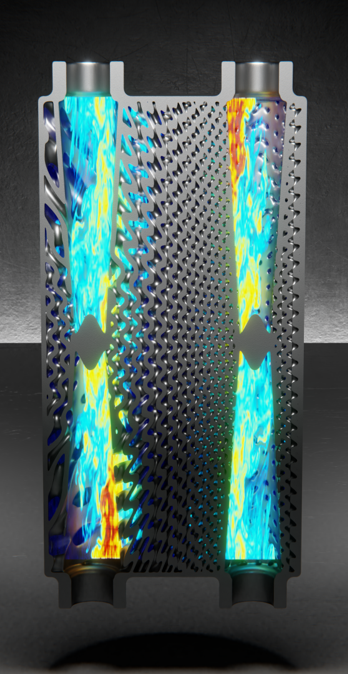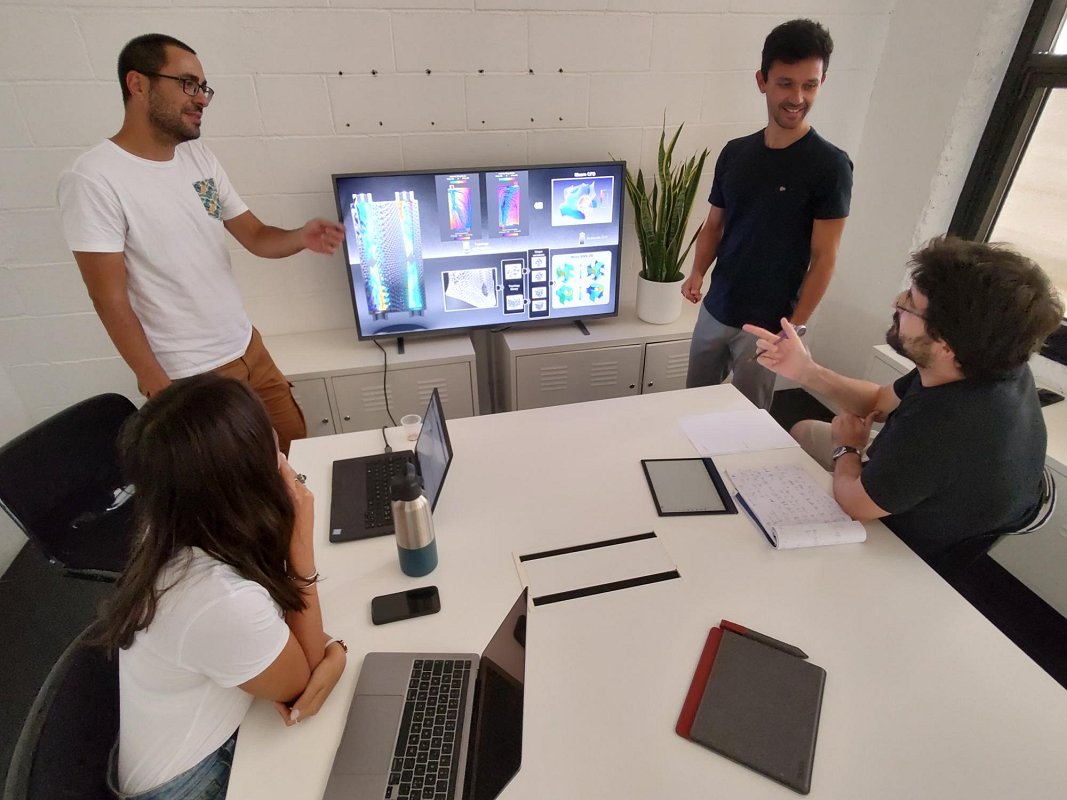Topology Optimization of Micro-Channel Heat Exchangers
Micro Channel Heat Exchanger (MCHE) are heat exchangers in which the fluid flows in lateral confinements with dimensions of millimeters. Thanks to the high volumetric heat flux, compactness, and efficient flow distribution, they offer several advantages over standard exchangers. The traditional design approach for MCHE requires several iterations before the final configuration is established, leading to significant R&D costs, long time-to-market, and expensive experimental campaigns. In practice, due to budget constraints, only a few configurations are assessed, resulting in sub-optimal design which negatively impacts the competitiveness of the final product.
SECTOR: Manufacturing
TECHNOLOGY USED: HPC, CFD Simulations
COUNTRY: Italy
The challenge
Micro Channel Heat Exchangers (MCHX) are heat exchangers in which the fluid flows in lateral confinements with dimensions of millimetres (usually used in the aeronautic, aerospace and oil & gas sectors). Thanks to their high volumetric heat flux, compactness, and efficient flow distribution, they offer improved performance over standard exchangers. The design of MCHX requires balancing many competing design constraints, including weight reduction and manufacturability. Topology Optimization (TO) is a promising design paradigm for finding an optimal design which meets all these requirements. However, geometries resulting from TO are impossible to manufacture using standard techniques such as Computerized Numerical Control machining or vacuum casting. Instead, the design and production paradigm of combining Topology Optimization with Additive Manufacturing (AM) has enormous potential but requires the solution of key technical challenges to provide accurate results at speeds consistent with industrial design cycles. These challenges arise from both the business and engineering contexts. The former generates the need for reduced design costs and shorter design cycles leading to a shorter time-to-market for new products. In turn, the engineering context requires innovative new solutions or improved existing solutions enabled through automated design exploration. Lastly, the requirement of accuracy maps directly to the need for accurate multi-scale models and robust automated computational pipelines to be executed on high-performance computing resources.
From the end-user perspective, the challenge is to deliver innovative high performing and customized MCHX to the market. They must be able to differentiate the offer with respect to standard solutions (tube or plate-fin heat exchangers) and leverage in-house design and manufacturing capabilities in AM to gain profitability. The target customers are from the aerospace and oil & gas industries, which are highly demanding from a regulatory point of view (e.g. certification processes), but willing to pay for added-value solutions in terms of weight saving, improved thermal performance, or higher compactness. Since 2019, Aidro has received several specific requests for MCHX in AM from these types of customers, but the design process with the tools available was too demanding in terms of effort. The experiment's technical challenge was therefore to develop a solution that would help Aidro respond to such requests.
The solution
The TOLOMHE platform developed in the FF4EuroHPC experiment was conceptualized and developed as a SaaS platform, which integrates a set of computational tools for topology optimization of MCHX in an HPC-centric framework. TOLOMHE represents the first step towards cloud services for topology optimization and generative design offered to SMEs specialized in AM for MCHX. This innovative solution is based on coupling a standard CFD solver (immerFLOW by Optimad), a ML model and a parametrized topology (mimic by Optimad). Thanks to the synergic deployment of the ML model and the CFD solver, multiscale CHT simulations can be performed without the burden of simulating high-resolution models during the online (optimization) phase. TOLOMHE is deployed on the CINECA HPC infrastructure to fully leverage the high scalability of genetic algorithms during topology optimization to guarantee a short time to solution.
Business impact
TOLOMHE represents an easy-to-use platform for generative design and product optimization. The ultimate goal is to alleviate problems and barriers encountered by SMEs specialized in the design of high-performance MCHX. The expected impact of TOLOMHE is threefold:
- Thanks to overcoming the trial-and-error approach, TOLOMHE can lead to a reduction in time-to-design by 75%, time-to-market by 50%, and time-to-prototype by 90%.
- As a consequence of redirecting skilled labour to other added-value activities, the savings can potentially add up to €100,000 per year for an end-user like Aidro.
- TOLOMHE is expected to generate a new stream of revenue of approximately €100,000 within 12 months and €250,000 within 24 months for OPTIMAD.
TOLOMHE has the potential to become a technology enabler and will allow a potential user to target high-value applications, improve the design of existing products, and ultimately increase market competitiveness. Thanks to the adoption of TOLOMHE, the end-users are expected to accelerate the transition from a build-to-print to a build-to-spec business model by reducing R&D costs and time-to-market for new products.
The first applications at Aidro foreseen for the TOLOMHE platform are an oil-air heat exchanger project for the transmission system of helicopters, which is a sea water-natural gas heat exchanger project for off-shore gas platforms.
Benefits
- Automation of the design workflow has the potential to shorten the time-to-offer by 90%, and time-to-market by 50%.
- For Aidro, savings can potentially add up to €100,000 million by redirecting skilled labour to other added-value activities.
- For OPTIMAD, TOLOMHE can generate a stream of revenue of approximately €250,000-500,000 in the first 36 months.
- For CINECA, sales of CPU cycles can generate up to €40,000 per year.
Organisations involved:


